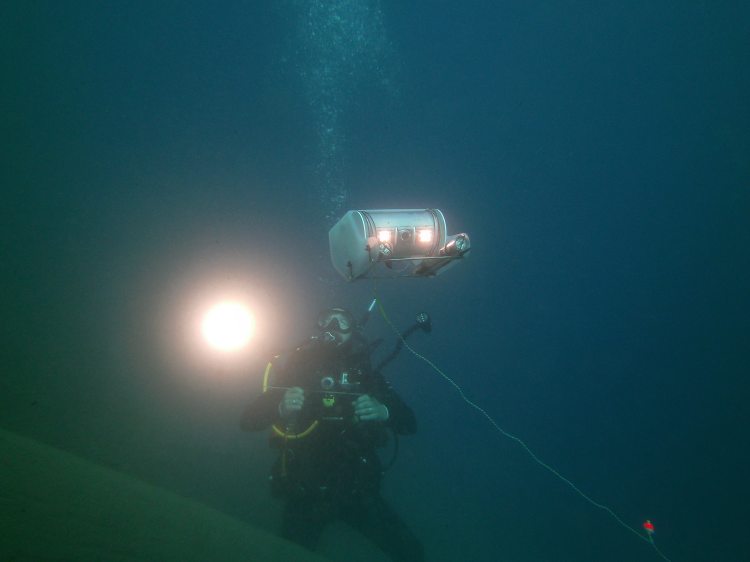Google is working hard to ensure its new trans-Pacific fiber optic cable called FASTER, which will link the West Coast of the U.S. to Japan, remains impervious to those wishing to tap it.
Like the National Security Agency (NSA) or Chinese security services, with their voracious appetite for such temptation — and the skills to do it.
“Security is a top priority for Google. We’ve invested a lot in making our products secure, including strong SSL encryption by default for Search, Gmail, and Drive, as well as encrypting data moving between our data centers,” a Google spokesperson emailed VentureBeat.
To be sure, Google is pushing back hard against the increased demands for user data by U.S. intelligence agencies and the FBI in light of former NSA contractor Edward Snowden’s document dumps about top secret agency programs that targeted Google, Facebook, Microsoft, and other IT giants with astonishing results.
And this includes quickly evolving their extant encryption standards to thwart against pipe tapping and intercepts.
Indeed, Google’s rapidly escalating encryption capabilities, and their know-how in thwarting attempts to siphon data, have impressed former NSA officials who once worked to break them.
“It’s really hard for anybody to crack them. They use plenty of encryption. Google put out a standard out there, and they’re going to evolve it. Although every encryption is crackable, it may take years and years to do it,” a former NSA official told VentureBeat Thursday, regarding FASTER.
A second former NSA official disagreed with that assertion and recently told VentureBeat that the technology existed for tapping FASTER readily enough. The source suggested that the best way to breach FASTER would be by gaining access to Google’s data centers on land, before the cable entered the water.
The NSA has has a long history of tapping cables, starting with the Soviets. In fact, the second former NSA official put it this way:
“Easy to tap for sure. If its US to JP, then no need to tap in the middle obviously, just look behind the big red door :)… if its a win would depend on what its replacing, if anything.”
Without question, Google is working hard to batten down the hatches concerning data safety — whether in Gmail, Hangouts, or Drive, for example — since Snowden’s damaging leaks first surfaced in American, British, and German media last year. The leaks have cost U.S. companies like Cisco billions in lost revenue. (See my article on that here.)
Because of the leaks, many U.S. IT giants are taking aggressive stances against the NSA’s legal requests through the FISA court for data. And when stymied, the NSA simply uses their technology to siphon it. But in the case of FASTER, the NSA may have a tougher nut to crack, now that the global spotlight continues shining on them.
Eric Grosse is Google’s main security guy. In an interview with the New York Times in June, he told the newspaper that the NSA itself was pretty much responsible for the growing lack of interest in a widening pool of people not helping them out.
“I am willing to help on the purely defensive side of things, but signals intercept is totally off the table,” Grosse told the Times. “No hard feelings, but my job is to make their job hard.”
FASTER is a $300 million investment by Google as well as a consortium of international company’s, including NEC Corporation, China Telecom, KDDI, SingTel, and others. FASTER will connect to data points in San Francisco and Los Angeles to the Japanese cities of Chikura and Shima on that country’s Eastern coast. Portland and Seattle are also envisaged.
Transmitting at 60 terabits per second, former intelligence officials told VentureBeat, FASTER will be a prime target for the NSA, because when completed the pipes will transmit massive data loads of broadband, mobile, apps, and enterprise information between the two countries.
Google has other such pipelines under the Pacific and Atlantic Oceans, these former intelligence officials told VentureBeat. A Google spokesperson declined to say how many pipes the company had or if they were piggybacking on others.
The Electronic Frontier Foundation has blasted the agency for their spying and its impact on American businesses. In their widely respected “Encrypt the Web Report,” released in March, in which they rate the encryption standards of IT giants, Google earned high praise for their efforts, in addition to Twitter, Facebook, and Sonic.net.
EFF legislative analyst Mark Jaycox said the way NSA normally works, most of the time, is to get a court order from the super secret FISA court that allows them to intercept traffic from their targets legally. But when denied the request, which is rarely, the NSA often goes it alone and plumbs the pipes of their own volition.
If NSA does obtain a FISA order, the company in question, whether Twitter, Yahoo or Facebook, is issued a gag order to keep their mouth closed. However, Jaycox had high praise for Google, saying the company, in light of the Snowden leaks, had now started to encrypt traffic not just from data center’s entry and exit points, but while in transit through the fiber.
“They’ve done a very good job in response to the Snowden disclosures,” he said, referring to Google.
With the NSA caught with their pants down thanks to Snowden, who now lives outside Moscow courtesy of autocrat Vladimir Putin, there’s big trouble brewing over at the NSA’s Fort Meade in how to deal with the increasing roster of technology giants circling the wagons against them.
“The commercial world is shunning its association with the intel community, including legal pressure, like abiding by legal warrants,” this former NSA official said, who agreed that FASTER was ripe for the picking.
“But I don’t see it being tapped. I really don’t, I just don’t.”


